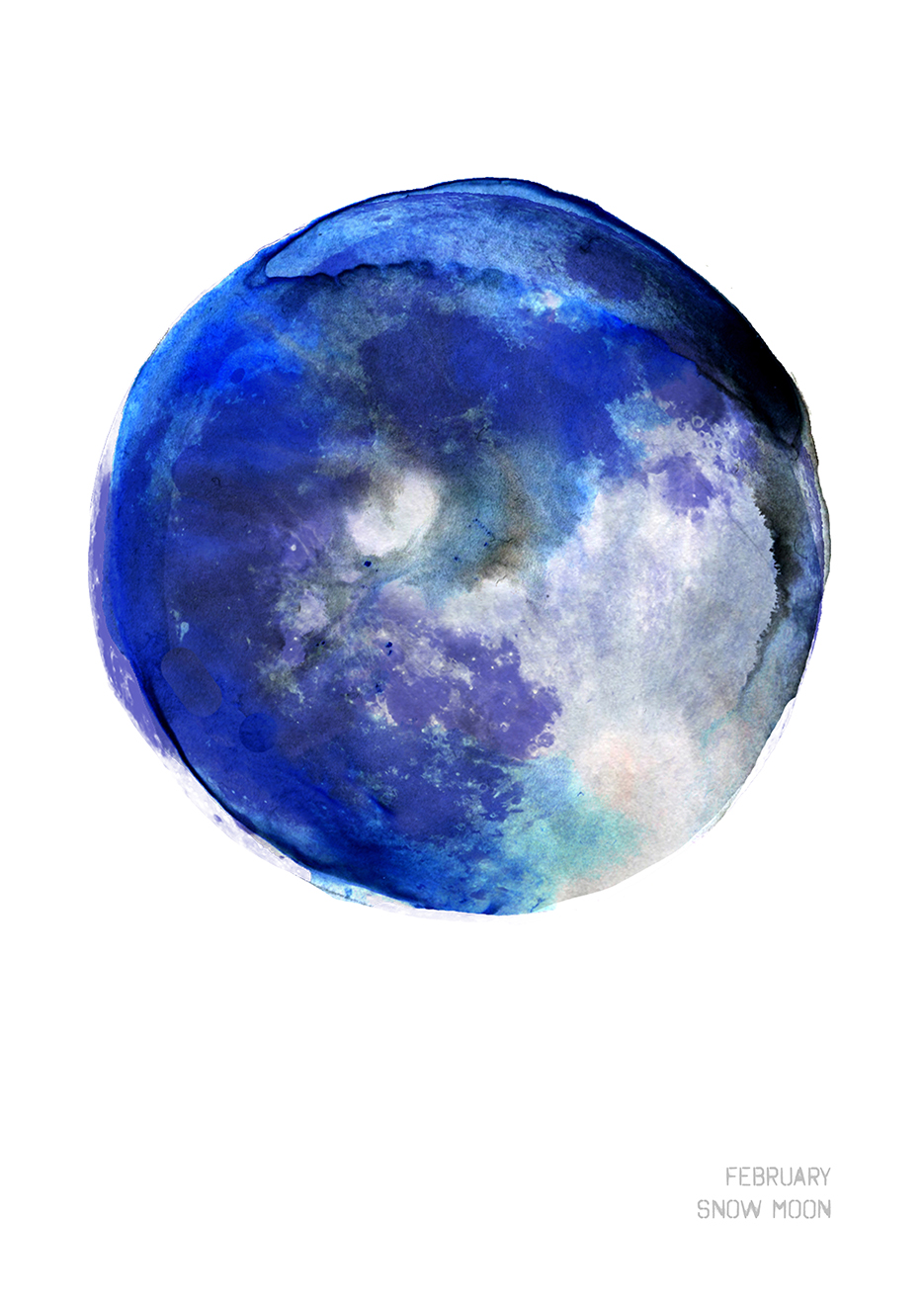Full Moon Names - Art Prints
The moon has inspired artists throughout history, with its powerful influence on nature and its waxing and waning from new moon to full moon and back again. We got the inspiration for our moon art prints when, on a summer camping trip to the New Forest, we spotted a particularly large and dazzling full moon. Knowing that September's full moon was called the Harvest Moon, we did some research (i.e. got our phones out) and found out that July's moon is called the Buck Moon (other names include the Thunder Moon).
Full Moon names were created to help track the seasons. In ancient times, it was common to track the changing seasons by following the lunar month rather than the solar year, which our modern calendar is based on. The name of the full moon was often a description relating to a particular activity or event that occurred during that month, like the Harvest Moon, Flower Moon or Snow Moon. The most well known moon names today originate from Native American tribes, however giving names to the full moons has been common in many cultures throughout history.
Here is some more information about our moon art prints and their names:
JANUARY: WOLF MOON
Native Americans and medieval Europeans named January's full moon after the howling of hungry wolves. Other names for this month's full moon include Old Moon and Ice Moon.
FEBRUARY: SNOW MOON
The cold, and snowy weather of February in North America earned its full moon the name Snow Moon. Other names include Storm Moon and Hunger Moon.
MARCH: SAP MOON
Native Americans named March’s full moon the Sap Moon, after the tapping of the maple trees. Another very common name is the Worm Moon after the worm trails that would appear in the thawed ground.
APRIL: PINK MOON
April's full moon is named the Pink Moon after a species of wildflower (Wild Ground Phlox) that flower around at this time of year in North America. Other names for this moon is the Sprouting Grass Moon or the Egg Moon.
MAY: FLOWER MOON
May’s rich flower blooms give its full moon the name Flower Moon in many cultures. Other names include the Hare Moon, the Milk Moon, and the Corn Planting Moon.
JUNE: STRAWBERRY MOON
The harvesting of strawberries in North America in June give its full moon the name Strawberry Moon. In Europe it was often called the Rose Moon.
JULY: BUCK MOON
Male deer begin to regrow their antlers in July, hence the Native American name for July's full moon is the Buck Moon. Other names include Thunder Moon.
AUGUST: STURGEON MOON
August's full moon is called the Sturgeon Moon after the sturgeon fish, that was abundant in North America during August. It has also been called the Green Corn Moon and the Grain Moon.
SEPTEMBER: HARVEST MOON
The most commonly know named moon, the Harvest Moon, refers to the nearest full moon to the autumn equinox when crops are usually gathered. It normally occurs is September but can sometimes happen in October. Other names include the Corn Moon and the Barley Moon.
OCTOBER: HUNTER'S MOON
The first full moon after the Harvest Moon is the Hunter's Moon. This was the perfect month to hunt deer and fox, now unable to hide in the bare fields. The bright Hunter's Moon is also gave hunters the opportunity to stalk prey at night. Other names include the Travel Moon.
NOVEMBER: BEAVER MOON
Some say the Beaver Moon is named after Native Americans setting beaver traps during this month, while others say the name comes from beavers building their winter dams around this time. Another common name is the Frost Moon.
DECEMBER: COLD MOON
The coming of mid-winter earned December's full moon the name Cold Moon. Other names include the Long Night Moon and the Oak Moon.

























